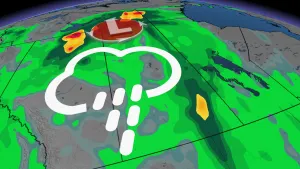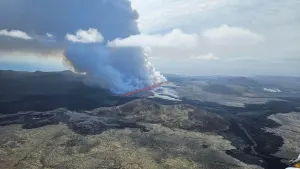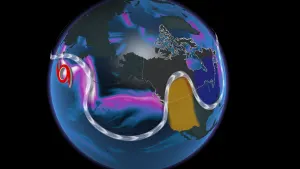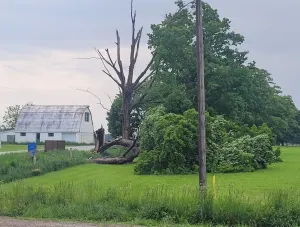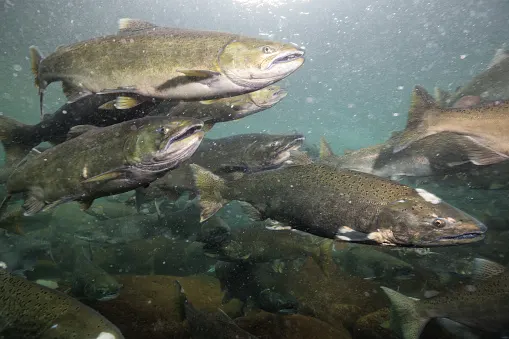
'Near historic low': Atlantic salmon returns plunged in 2019
The species faces a large number of threats making it less likely to weather the effects of climate change, which is increasing river temperatures.
The figures are in, and it's bad news for Atlantic Canada's iconic salmon: In 2019, both mature and younger Atlantic Salmon returned to East Coast waters in numbers among the lowest in half a century.
That's according to the Atlantic Salmon Federation (ASF), whose latest report measures the 2019 returns for North American waters -- the bulk of them in Atlantic Canada.
In all, the ASF says some 103,900 large salmon -- fish who've spent at least two winters in the open ocean -- returned to freshwater last year, the third-lowest in 49 years.
More grilse -- fish who've only spent one winter at sea -- returned in 2019, around 332,100 in total, but that figure represents the eighth-lowest over the same time span.
The number of two-sea winter salmon returns in 2019 were well below the threshold the ASF says is the minimum number needed to meet conservation limits in North America, about 194,000 fish. In fact, the ASF's report notes, annual returns have only been above that level once since the early 1990s.

Image credit: 2020 report of the ICES Working Group on North Atlantic Salmon/Atlantic Salmon Federation
The ASF says habitat degradation due to dams, forestry, agriculture and invasive species make the species less able to adapt the climate change, which is increasing river temperatures. Commercial bycatch at sea and rising predator populations add their own challenges.
“The combined effect is that fewer juvenile salmon parr are living to become smolt, and fewer smolt are making it successfully to their ocean feeding grounds,” ASF President Bill Taylor said in a news release.
Some 127 tonnes of wild Atlantic salmon was harvested last year, the lion's share, 105 tonnes, in Canadian waters. The ASF and its counterparts in Greenland and Iceland have agreed to reduce catches at sea, and have improved tracking and monitoring, but more work needs to be done on the freshwater side.
As well, Taylor says more cooperation is needed between governments at the federal and provincial level, and local First Nations, NGOs and other groups to preserve the salmon.
“People have continuously been asked to give up rights and privileges in the name of conservation, but those sacrifices have not been matched by meaningful action from governments," Taylor says. "It’s time for governments to coordinate with each other, follow through on commitments, and make decisions on tough issues."







